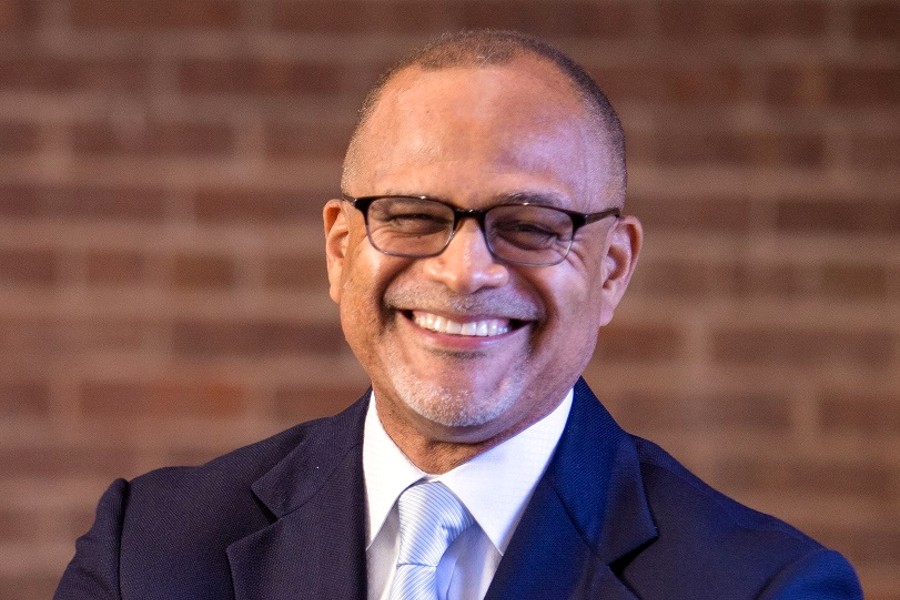
Today, the BPHA Caucus, Deputy Senate Majority Leader, dozens of lawmakers, business groups, and labor leaders from Harlem to the Hudson rallied at the State Capitol.
This was to call for the swift passage of the Clean Slate Act to seal old conviction records and allow New Yorkers to access jobs, housing, and education.
The legislation has growing momentum in the state legislature. Last week, Assembly Speaker Carl Heastie publicly committed to the bill saying, “We will definitely consider Clean Slate before the end of the session…It helps public safety. It helps deal with the issues of a workforce.” Clean Slate passed the State Senate last legislative session and has already passed through a Senate committee.
Assembly Member Michaelle Solages, Chair of the Black, Puerto Rican, Hispanic, and Asian Legislative Caucus said: “One of the greatest bills that we can pass this session is Clean Slate because we need to economically empower our communities.”
Deputy Senate Majority Leader Michael Gianaris said: “I’m proud the Senate has already passed the Clean Slate Act. No other bill has this degree of support – from business, labor, and local governments. We have to get it done this year – no excuses.”
Senator Zellnor Myrie, lead Senate sponsor of the Clean Slate Act said: “My colleagues and I have left everything on the table for this bill. We are going to pass it because Clean Slate can’t wait.”
The Clean Slate Act would address the systemic barriers to jobs and housing posed by old conviction records, boosting the economy and improving public safety. A Harvard Law Review study found that within two years of clearing their records under Michigan law, people were 11% more likely to have a job, were earning 25% more, and were less likely than members of the general public to be convicted of a crime. By allowing people to access life essentials, Clean Slate will help to create stronger, safer communities.
According to a recent analysis, this legislation would generate an estimated annual earnings boost to New York State of $7.1 billion. Nationally, excluding individuals with conviction records from the workforce costs the economy as much as $87 billion annually in lost GDP – a devastating loss with a real human toll on households, individuals, workers, businesses, and families.
Joeann Walker, spokesperson for Con Edison said: “As a major New York employer, Con Edison has first-hand knowledge of the labor shortage facing New York. Criminal records impact our workforce, customers, and communities. There are more than 2.3 million New Yorkers that have a criminal record and having a criminal record blocks individuals from accessing employment, among other things. Removing obstacles to employment through passing the Clean Slate Act and including justice-involved individuals in the talent pipeline can help increase the workforce. The Clean Slate Act will also help boost the economy. A study found New York loses an estimated $7.1 billion in wages because of unemployment and underemployment among people with conviction records. By expanding opportunity, the Clean Slate Act can help expand the state’s workforce and increase wages. For example, within two years of expunging an individual’s criminal record under Michigan law, research showed that an individual was 11% more likely to have a job and earned nearly 20% more in wages.”
Michael Prohaska, Business Manager of the Mason Tenders District Council of Greater New York and Laborers Local 79 said: “We have said time and again that Clean Slate can’t wait and we’re glad our cries of support for this labor and criminal justice reform bill are finally being heard. New Yorkers shouldn’t be relegated to the margins of society – unable to secure a job, housing, and more – because of a past mistake, they made. It’s time New York gave people the dignity and respect they deserve when they return home from being incarcerated by passing the Clean Slate Act.”
The Clean Slate Act has been endorsed by three Fortune 500 companies – Microsoft, Verizon, and JP Morgan Chase – who employ tens of thousands of New Yorkers, the Business Council of New York State which represents 3,500 member companies, local chambers of commerce, and professional and trade associations, and, recently, National Grid and ConEdison.
The bill also has the support of unions representing over two million workers, including 32BJ SIEU, Hotel & Gaming Trades (HTC), District Council 37, 1199 SEIU, Local 338 RWDSU/UFCW, Mason Tenders’ District Council, Laborers’ Local 79, and the New York State Nurses Association.
Ismael Diaz, member of Center for Community Alternatives, and a formerly incarcerated leader said: “My conviction is from 2006. I served 9 ½ years without incident and came home 1 class short of a bachelor’s degree, which I have now completed. It all sounds good until I couldn’t get a job as a janitor because of my record. Recently I did get hired for a company and I was truthful on the application about my felony conviction. I was hired and after 30 days of employment, I received a raise and a citation for excellent work. Then I received an email that asked me to explain in detail my conviction. I was fired after 40 days of employment due to my background check. I have an extensive resume of overqualified positions much higher than the one I was currently working. This is why we need Clean Slate.”
Clean Slate has unprecedented support from across the state. Resolutions in support of the Clean Slate Act (S.211A/A.1029A) have passed in fifteen cities and counties across the state, including New York City, Buffalo, Westchester, Albany City and County, Syracuse, Ulster County, Columbia County, Newburgh, Hudson, Ellenville, Poughkeepsie, Beacon, Catskill, and Schenectady.
Nationally, Clean Slate bills have earned bipartisan support and passed in red and blue states including Utah, Connecticut, California, and Michigan. Even Texas, Missouri, and West Virginia are actively considering them now as well.
Senator Gustavo Rivera, Chair of the Senate Health Committee said: “A conviction record should not prevent someone from fully participating in their community once they are released from prison. Formerly incarcerated individuals, especially those in Black and Brown communities, deserve to lead full lives. I proudly co-sponsor the Clean Slate Act because formerly incarcerated New Yorkers should have the right to reintegrate into their communities and thrive.”
Assemblywoman Latrice Walker said, “I am one of the co-sponsors of Clean Slate and I represent an Assembly district that has the fifth highest incarceration rate in the state. After people successfully serve their time, many of them come home and face systemic barriers that prevent them from getting jobs, pursuing a trade or education, or getting stable housing. Instead of slamming formerly incarcerated people with another layer of punishment, New York State needs to wipe the slate clean.”
“Everyone has the capacity for change. Formerly incarcerated individuals who have served their time and demonstrated changed behavior should have the same opportunities upon reentry as anyone else,” said Assemblymember Brian A. Cunningham. “The Clean Slate Act allows these types of reformed offenders to secure gainful employment and move forward without discrimination, so their past doesn’t impede their future.”
Senator Luis Sepúlveda said,”I invite everyone to support the Clean Slate Act and not forget that automatic sealing is not just a policy, it is a necessary step toward justice. This law recognizes the errors of over-policing, over-prosecution and racial injustice in our criminal legal system and takes a step toward correcting these systemic barriers. The statistics speak for themselves, as Black and Latino people are disproportionately affected by these injustices. The Clean Slate Act is a crucial tool in the fight for equality and we must work together to ensure its success.”
Assembly Member Kenny Burgos said: “As we approach the end of this legislative session, we have another chance to make a positive impact on those who have paid their debt to society. No one should ever be denied the opportunity to rebuild their lives due to a conviction history. We can finally end this stigma and pass meaningful legislation that would allow these folks to receive the critical resources needed to succeed. I look forward to finally seeing Clean Slate passed this year.”
Assembly Member Chantel Jackson said: “The Clean Slate Act will give individuals a second chance to move forward with their lives without being held back by past mistakes; individuals who have served their time should not be punished indefinitely. It would reduce the stigma associated with having a criminal record and increase employment opportunities, leading to more economic stability and decreased recidivism rates. Clean Slate would benefit not only those with criminal records but also their families and communities. Our criminal justice system disproportionately affects Black people and People of Color, and the passage of Clean Slate will promote equity.”
Because of racism in New York’s criminal legal system, these civil consequences resulting from old conviction records disproportionately impact Black and brown New Yorkers and deepen already-existing racial inequalities in civic life. As recent data shows, 80% of individuals in New York City with conviction records are Black or Latinx, which mirrors statewide trends.
The Clean Slate Act would seal old conviction records to allow people to access housing, education, and most jobs, but with exceptions for law enforcement and work with vulnerable populations. Misdemeanor convictions seal after three years and felony convictions seal after seven years as long as someone is off of parole or probation and has no new charges or convictions. Sex offenses are not eligible for sealing.
The New York State Black, Puerto Rican, Hispanic and Asian Legislative Caucus
The New York State Black, Puerto Rican, Hispanic, and Asian Legislative Caucus is a sixty-seven-member body of state legislators representing a quarter of residents across the State of New York from Long Island, the metro New York City area, and upstate. To learn more, visit bphacaucus.com.
- Wells Fargo Shares Economic Impact From Open For Business Fund
- Harlem Rallies For Kamala Harris: A Historic Gathering Of Black Women Leaders
- In Conversation With Ketanji Brown Jackson At The Apollo Theater In Harlem
- Chancellor David C. Banks Appoints Simone Hawkins As Deputy Chancellor For Early Education
- Vibrant Summer Styles Are Making A Comeback 2024
Become a Harlem Insider!
By submitting this form, you are consenting to receive marketing emails from: Harlem World Magazine, 2521 1/2 west 42nd street, Los Angeles, CA, 90008, https://www.harlemworldmagazine.com. You can revoke your consent to receive emails at any time by using the SafeUnsubscribe® link, found at the bottom of every email. Emails are serviced by Constant Contact









